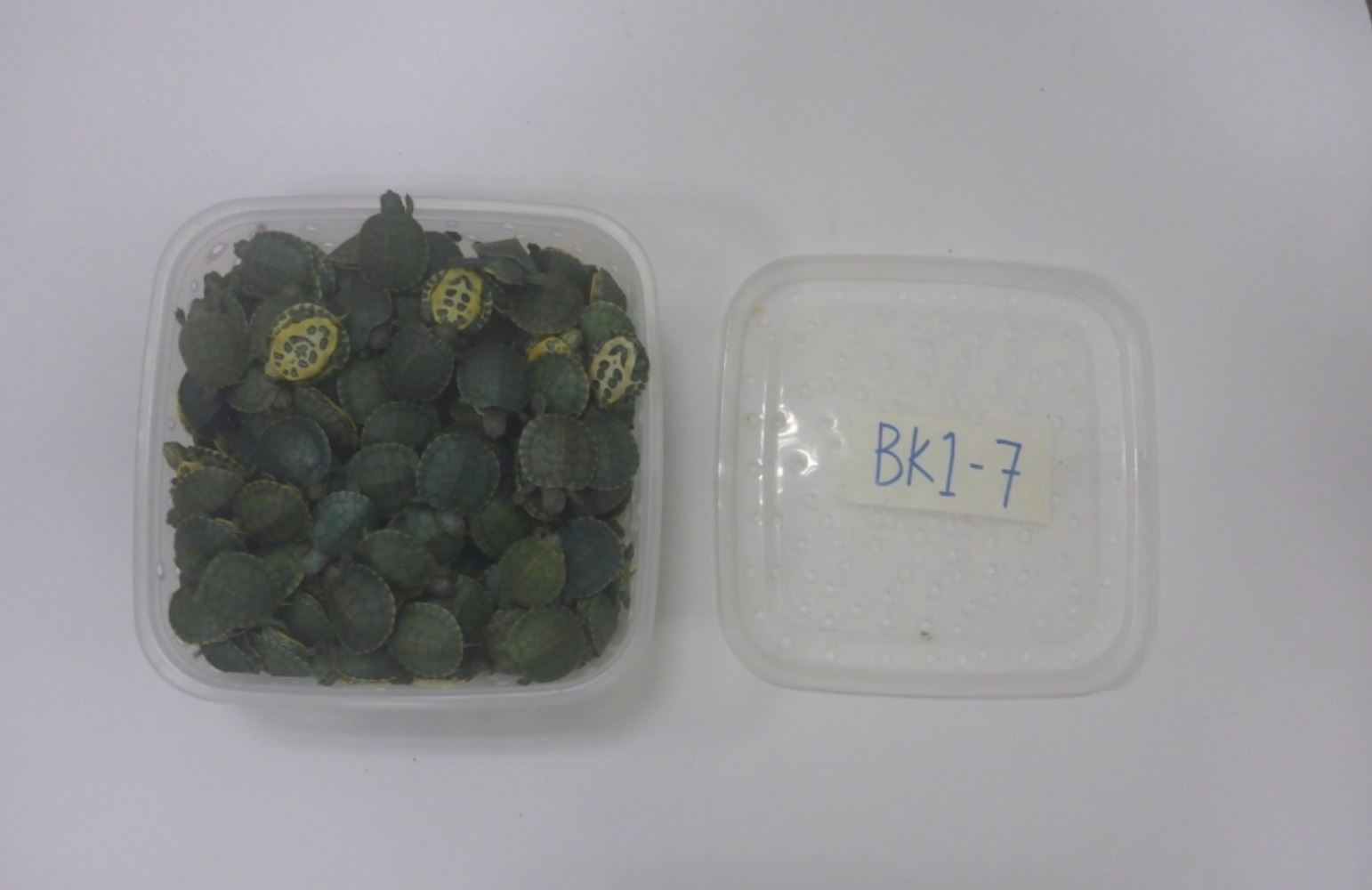Authorities at Kuala Lumpur International Airport (KLIA) have detained a foreign national after finding more than 2,500 live turtles hidden in his luggage.
 Photo via Malay Mail
Photo via Malay Mail
The man was arrested on Wednesday, 6 August, moments before boarding a flight to Bengaluru, India. Acting on prior intelligence, officers from the Malaysian Border Control and Protection Agency (AKPS) intercepted the suspect at the departure gate.
A luggage scan revealed suspicious shapes which, upon inspection, turned out to be thousands of red-eared slider turtles packed into bags and plastic containers. Officials estimate the haul to be worth around RM348,000.
The case is being investigated under the Wildlife Conservation Act 2010 and the International Trade in Endangered Species Act 2008. All turtles have been seized as part of the ongoing investigation.
This is the latest in a series of wildlife smuggling incidents at KLIA. In May 2025, two men were caught attempting to smuggle over 300 reptiles, including monitor lizards and iguanas. In July, another suspect was arrested for carrying primates and armadillos in his luggage.
Red-eared sliders, native to the southern United States and northern Mexico, are one of the most heavily traded turtle species in the world. Their small size, low price, and reputation as easy-to-care-for pets have made them popular in the exotic pet market.
 Photo via Malay Mail
Photo via Malay Mail
However, they are also considered one of the world’s 100 most invasive species and have caused ecological problems in countries where they have been released into the wild.
The smuggling and trade of wildlife is illegal because it threatens species survival, disrupts ecosystems, and often subjects animals to cruel conditions during transport. Wild animals are protected under law to ensure that they can thrive in their natural habitats, where they play vital roles in maintaining ecological balance.
Protecting them in their native countries helps preserve biodiversity and prevents the spread of invasive species that can harm local wildlife.
